Four weeks ago, we said goodbye to our beloved dog Kiko. It was twenty-two days before his fifteenth birthday. The time had come, and it would have been cruel to deny it. He wasn’t suffering from a catastrophic illness, but he was clearly suffering, nonetheless. Over the course of this last year, our family witnessed his decline. It was a gradual descent, with a smattering of upward blips, typically when least expected. Out on a walk, he’d occasionally harness a sudden burst of energy and run all the way home. We could hear the plague-stricken old man in Monty Python’s The Holy Grail declaring, “I’m not dead.” The last of Kiko’s rallying efforts occurred in mid June. After that, it was all slow motion. We had taken steps, of course, to improve his condition, to alleviate his pain and anxiety. None had any substantial effect. Toward the end, it seemed that our dog was more than simply uncomfortable. He appeared to be perpetually and profoundly uncomfortable, both physically and emotionally. He was as handsome as ever. His body was as trim and lean, his thick, waxy coat as luxurious, his face, though faded from dark red to white, just as beautiful. Yet he apparently could find no peace, no place of solace, in his skin or in what had been the familiar surroundings of home.
We watched as Kiko’s former pastimes lost their appeal. As his agility decreased, it became difficult for him to access his prime window-level viewing spots. In early May, I wrote about how a ride in a car, once the ultimate thrill, had morphed into just another source of anxiety. His favorite hassock on the screened porch, the site of long pleasant snoozes in summers past–he avoided it. He had given up all interest in wandering our fenced back yard. Instead of alternately baking on the hot bluestone of the patio and cooling in a patch of shady mulch, he tended to stand uncertainly before heading back up the stairs, which he climbed with difficulty. He seemed to have completely forgotten that he ever lay in the pine straw by the bird feeder and kept watch on the wildlife. After getting stuck in the doggy door a couple of times, he no longer attempted to enter or exit the porch on his own. He used to revel in having the freedom to cross the courtyard to my mother’s house for a sausage biscuit or some other tasty snack. Sometimes he’d sleep for hours in his bed in the chill of her family room. More recently, when he reluctantly accompanied me there, he seemed to be particularly worried, pacing endlessly in a circle. He wanted to be home.
But home had become elusive. More and more, he was anxiously pacing in our house, as well. Over and over, he made a circuit from the playroom to the back door. Even when he ate, he’d take a bite of food and walk away. When inside, he wanted to be out, and when outside, he wanted to be in.
For a while, he could retreat to a safe haven upstairs, in his fluffiest, coziest nest of a bed, the one in my room in a secluded spot next to the armoire. After circling a few times, he’d settle and sleep for a while, something he found impossible in any of his assorted beds downstairs.
Kiko’s eyesight and hearing must have been significantly impaired. But his sense of smell apparently remained acute. Because of that, and his general restlessness, we were out five or six times a day on what should have been short walks. We covered small distances, but at a snail’s pace. He still seemed to derive satisfaction from savoring the party platter of neighborhood smells. With his nose deep in the grass, I could imagine that he was fully alive and well again. But before long, he’d look overwhelmed and disoriented. The oppressive heat during his final days didn’t help.
After returning from such a walk, though obviously exhausted, Kiko couldn’t stretch out on the kitchen floor to relax and cool down. Instead, his restlessness continued, to a heartbreaking degree. My once self-assured little dog, who, for so many years, preferred to go his own way, on his own terms, now followed me insistently from room to room, with a plodding gait, panting, questioning, distressed. Holding him, cuddling him–that did no good. He’d pull away, more uneasy than ever. It was as though he refused to be comforted.
Except in the very early hours of the morning. Maybe that was when his desperation or weariness peaked, or when he let his defenses down. During Kiko’s last months, he’d awaken me around two or three AM, standing beside my bed, nosing the covers. He was no longer able to make the leap, but he’d allow me to pick him up and put him in bed with me. He’d circle round and round a few times, but then he’d curl up near me. Sometimes he’d almost snuggle. And then he’d sleep, deeply, and well into the late morning. On his final night, he actually did cuddle close. He slept most of the night with his head resting on my leg. It’s a sensation I hope I never forget. My odd little dog gave me a precious parting gift. He finally let me comfort him.
Kiko has his wings now. He soars as he did in his puppy days. That thought is my present comfort.

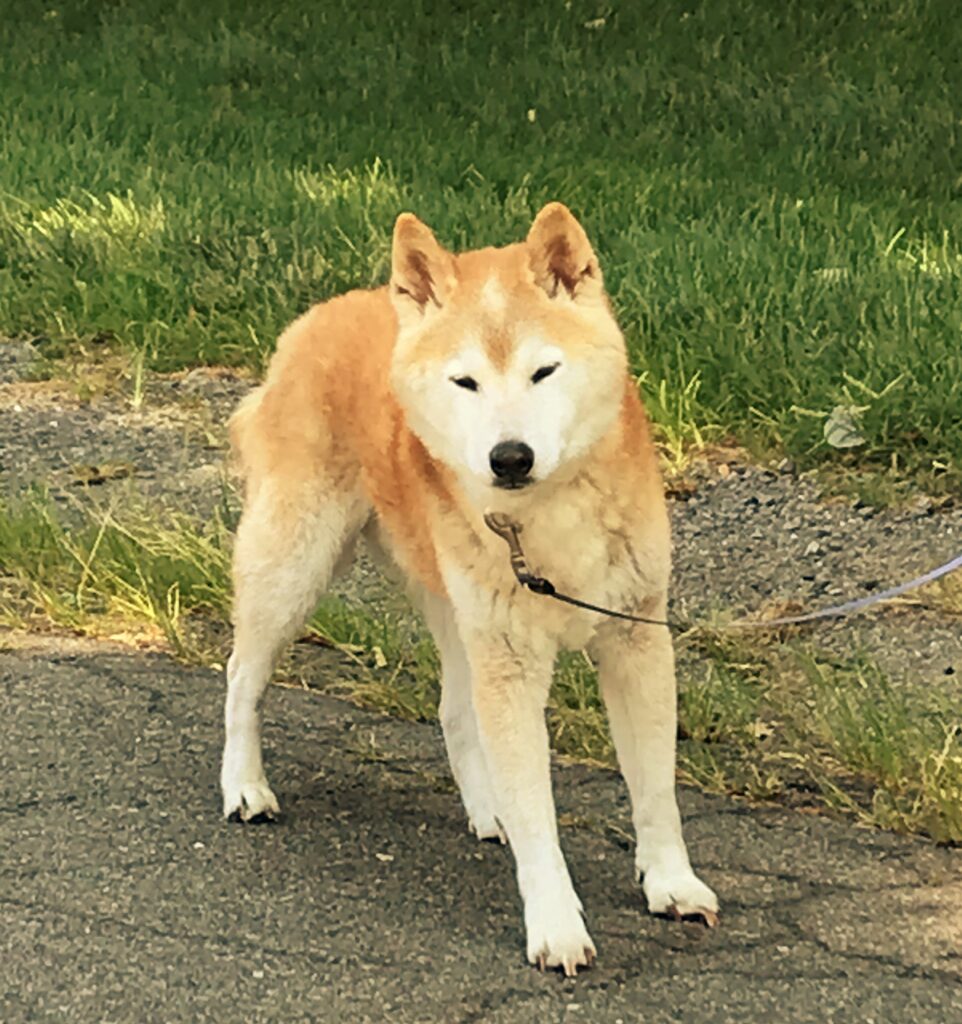
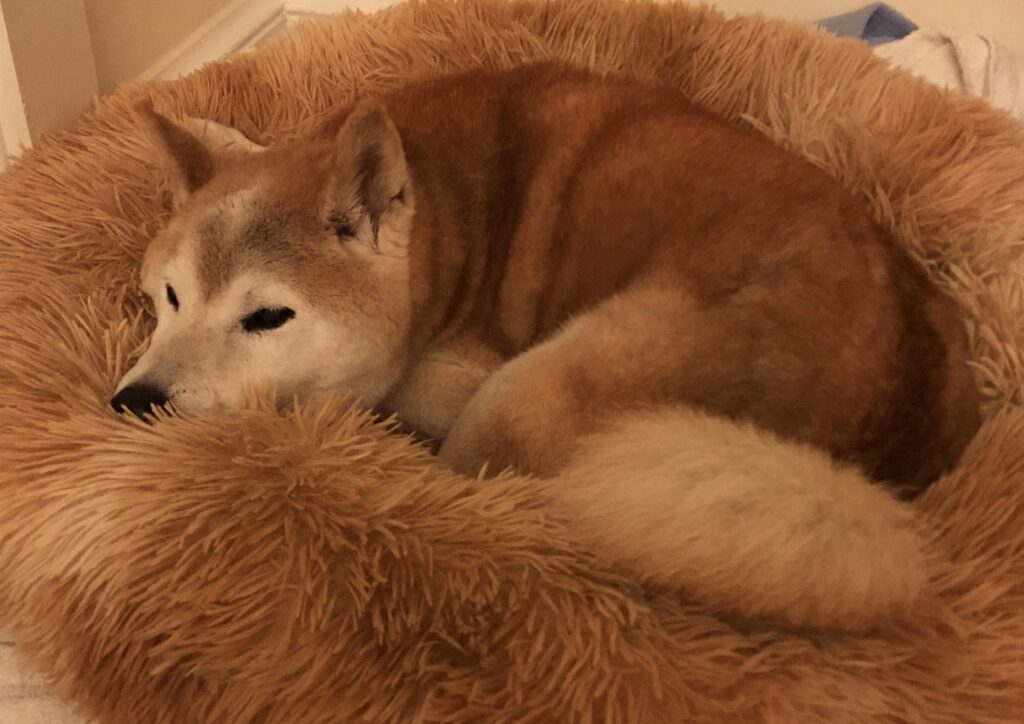
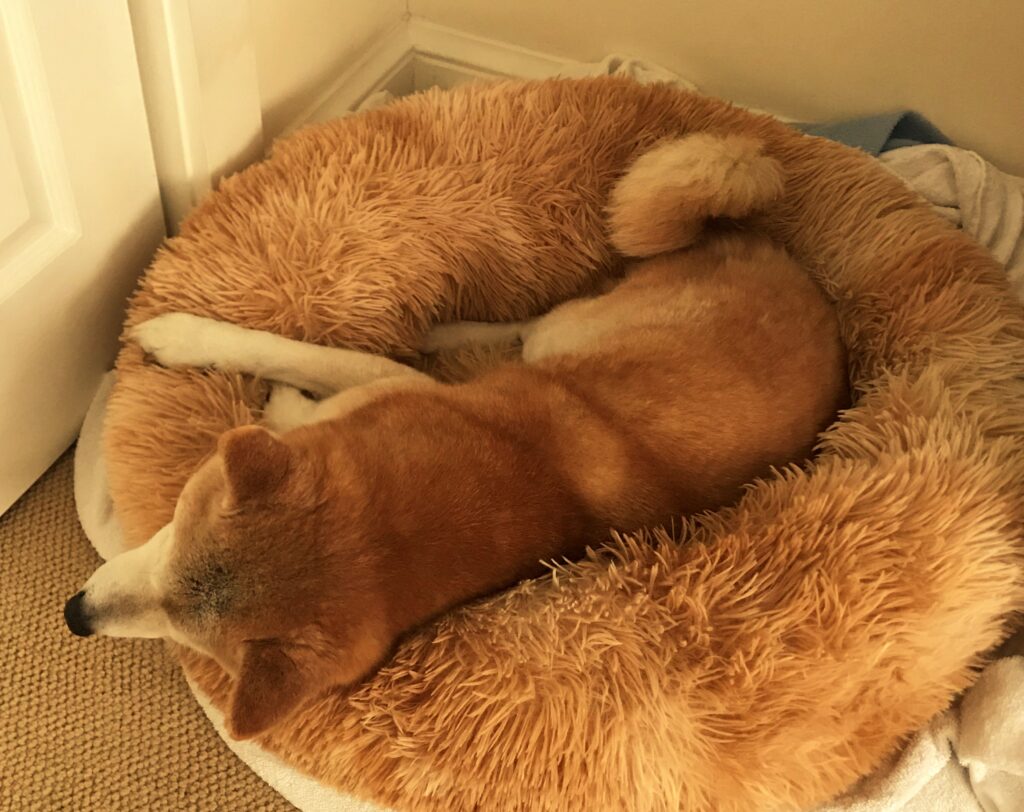
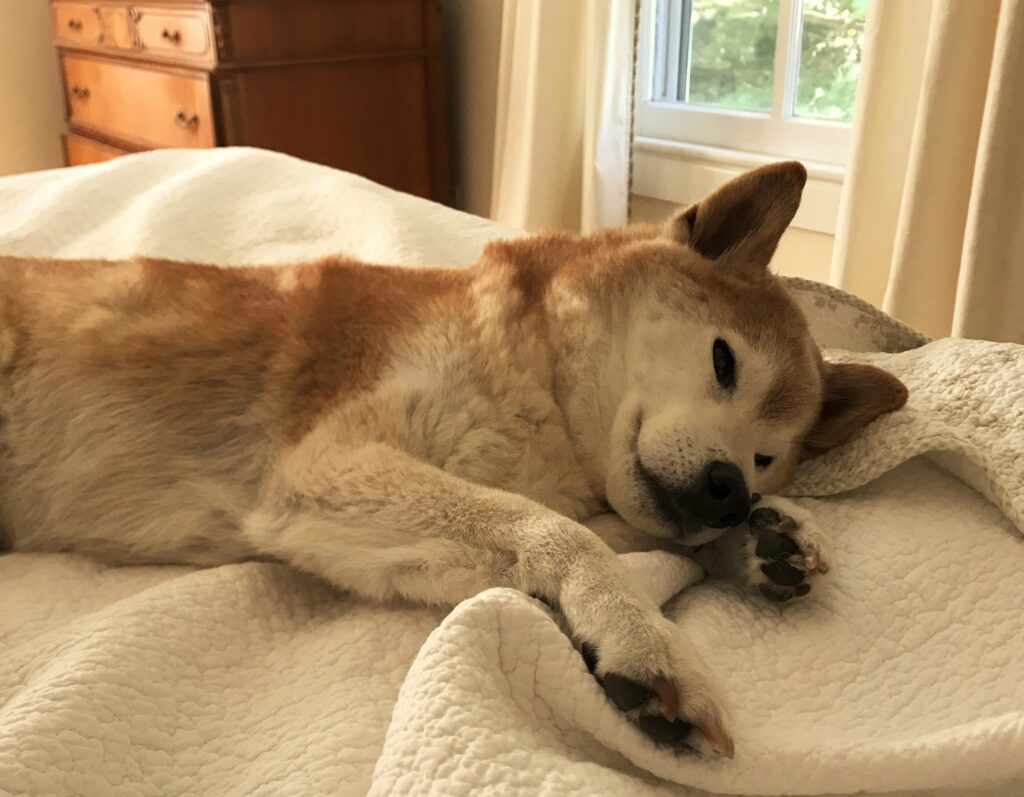
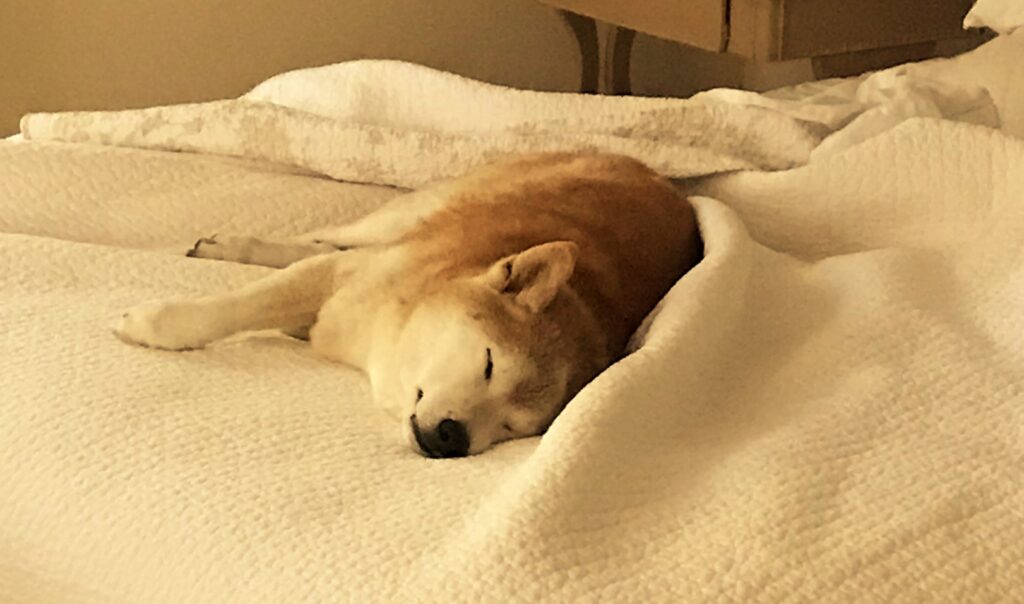
My heart goes out to you all…
Thank you, Libby. You know the feeling too well, after the passing of dear Birdie. I’m so glad I had the pleasure of meeting your sweet girl.